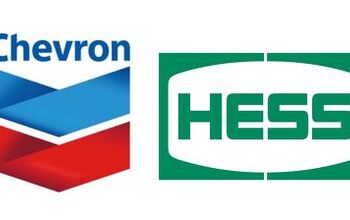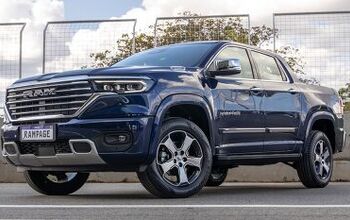Trade War Watch 18: DetNews Fumbles With The Saber
Just over one week ago, a Detroit News piece pointed me towards a letter written by Senators Carl Levin and Debbie Stabenow, which took China to task for considering draft legislation that might possibly require more technology transfers to Chinese companies as a precondition to market access. Having chased down both the letter and the US National Trade Estimate it was based on, as well as several reports on the draft legislation itself, I wrote a lengthy piece about how Senators Levin and Stabenow were rattling the saber about what appeared to be a complete non-issue. In that piece, I not only debunked the senators’ concerns, but I also pointed out that China’s local consumer EV subsidies were the far more worrying potential trade barrier, as we have been hearing that they require that all qualifying EVs be built in China and sold with Chinese brands (a condition at odds with at least the 2004 version of China’s Auto Industry Development Plan, which stated “local governments should encourage fair competition among motor vehicles made by different places on the local market. They are not allowed to carry out any discriminative policy or measure which may lead to discrimination against non-locally manufactured automobile products.”). And it turns out that my 2,000+ words didn’t put everyone to sleep, as a new DetNews piece re-reports the Stabenow/Levin letter with the inclusion of a new motivation never mentioned in their actual letter, to wit:
For electric or plug-in vehicles to qualify for incentives under the proposed rules, they must be produced in China — by a Chinese carmaker or in a joint venture with a Chinese company
Ignoring for a moment that this wasn’t explicitly mentioned in the letter, there’s another issue here: subsidies aside, building any car in China requires a joint-venture. More importantly, China need not establish any barriers to the sale of imported plug-in or hybrid cars for the simple fact that the Toyota Prius’s epically weak sales there prove that imported NEVs can’t compete in the market. Of course subsidies may change that, but even more important is the issue of registration limits: if China requires EVs to be locally-made in order to waive Beijing’s registration restrictions, that could create more of a barrier than any cash subsidy. Meanwhile, neither Daimler nor Toyota nor VW nor BMW seems to have a problem with building EVs locally under a JV (cost and supply chain make Chinese production the logical choice anyway, necessitating a JV). The DetNews (and presumably Senators Levin and Stabenow) are getting closer to understanding the problems with China’s New Energy Vehicle Plan, but it seems they may yet have some more TTAC reading to do.
More by Edward Niedermeyer
Latest Car Reviews
Read moreLatest Product Reviews
Read moreRecent Comments
- 3-On-The-Tree 2014 Ford F150 Ecoboost 3.5L. By 80,000mi I had to have the rear main oil seal replaced twice. Driver side turbo leaking had to have all hoses replaced. Passenger side turbo had to be completely replaced. Engine timing chain front cover leak had to be replaced. Transmission front pump leak had to be removed and replaced. Ford renewed my faith in Extended warranty’s because luckily I had one and used it to the fullest. Sold that truck on caravan and got me a 2021 Tundra Crewmax 4x4. Not a fan of turbos and I will never own a Ford again much less cars with turbos to include newer Toyotas. And I’m a Toyota guy.
- Duke Woolworth Weight 4800# as I recall.
- Kwik_Shift_Pro4X '19 Nissan Frontier @78000 miles has been oil changes ( eng/ diffs/ tranny/ transfer). Still on original brakes and second set of tires.
- ChristianWimmer I have a 2018 Mercedes A250 with almost 80,000 km on the clock and a vintage ‘89 Mercedes 500SL R129 with almost 300,000 km.The A250 has had zero issues but the yearly servicing costs are typically expensive from this brand - as expected. Basic yearly service costs around 400 Euros whereas a more comprehensive servicing with new brake pads, spark plugs plus TÜV etc. is in the 1000+ Euro region.The 500SL servicing costs were expensive when it was serviced at a Benz dealer, but they won’t touch this classic anymore. I have it serviced by a mechanic from another Benz dealership who also owns an R129 300SL-24 and he’ll do basic maintenance on it for a mere 150 Euros. I only drive the 500SL about 2000 km a year so running costs are low although the fuel costs are insane here. The 500SL has had two previous owners with full service history. It’s been a reliable car according to the records. The roof folding mechanism needs so adjusting and oiling from time to time but that’s normal.
- Theflyersfan I wonder how many people recalled these after watching EuroCrash. There's someone one street over that has a similar yellow one of these, and you can tell he loves that car. It was just a tough sell - too expensive, way too heavy, zero passenger space, limited cargo bed, but for a chunk of the population, looked awesome. This was always meant to be a one and done car. Hopefully some are still running 20 years from now so we have a "remember when?" moment with them.

































Comments
Join the conversation
Doesn't non-locally mean made in another province, not made in another country